
It happens to all of us gradually as we live and grow. We discover more about who we are and the way life is, and then we realize there are some changes we need to make. The lifestyle we’ve been living no longer fits. The environments and relationships we once found comfort in no longer exist, or no longer serve our best interests. So we cherish all the great memories, but find ourselves at a crossroads in life, moving forward.
And it’s not easy. It’s painful to give up what’s comfortable and familiar, especially when there’s no other choice. Marc and I have struggled through this process many times out of necessity. Over the past 15 years we’ve had to deal with several significant, unexpected life changes and challenges, including:
- Losing a sibling to death in our mid-20’s
- Losing a best friend to a freak accident two weeks later
- Financial unrest following a breadwinning employment layoff
- Breaking ties with a loved one who repeatedly betrayed us
- Family business failure (and reinvention)
- and the list goes on…
Those experiences were brutal. Each of them, naturally, knocked us down and off course for a period of time. But once we accepted the truth, by giving up our ideals and letting go of the way things used to be, we pressed forward, more resilient, and with a greater understanding and respect for life.
Getting to the right state of mind, one that actually allowed us to move forward with our lives, required mindful practice. Because when we were initially faced with each one of those brutal experiences — when we were standing at the forefront of another rocky crossroads in our lives — you better believe our minds were spinning with emotions. We had to learn to catch ourselves in that whirlwind of emotional turmoil and calm our minds, so we could cope effectively and move forward.
When you find yourself facing a disheartening reality your emotional reaction might be to deny the situation, or to avoid dealing with it altogether. But by doing so you’re inadvertently holding on even tighter to the pain that you wish to let go of — you’re, in effect, sealing it up inside you. If you notice yourself doing something similar, it’s time to pause, admit to yourself that you’re coping by avoiding, and then shift your focus to a healthier coping mechanism, like using the quotes listed later in this post to help you open your mind.
When you face struggles with an attitude of openness — open to the painful feelings and emotions you have — you find out that it’s not comfortable, but you can still be fine and you can still step forward. Openness means you don’t instantly decide that you know this is only going to be a horrible experience — it means you admit that you don’t really know what the next step will be like, and you’d like to understand the whole truth of the matter. It’s a calm learning stance, instead of one that franticly assumes the worst.
The Benefits of Healthy Coping
Coping in a healthy way isn’t always an easy thing to do, but it’s always worth your while. With practice, healthy coping allows you to find better ways of managing life’s continuous stream of unexpected and uncontrollable circumstances. For example…
- A task is harder than you expected it to be — Instead of running from a daunting and overwhelming task, you can accept it and see what it’s like to feel uncomfortable and overwhelmed, and still take action anyway. Writing a book, for example, is daunting and overwhelming, but you can still write one even with those feelings rolling through you (just like Marc and I did with our books).
- An interaction with someone you love angers or frustrates you — Instead of lashing out at a loved one when you’re upset with them, you can sit quietly with your difficult feelings and just be open to what it’s like to feel them. And then, once you’ve had a moment to breathe, you can see what it’s like to deal compassionately with someone you love who you’re also upset with. To try to understand them instead of just judging them at their worst.
- Unhealthy cravings overwhelm you out of nowhere — You may be inclined to indulge in unhealthy cravings like alcohol and sweets for comfort when you’re feeling stressed out. But you can sit with these feelings and be open to them instead, and then gradually build positive daily rituals for coping in healthier ways—taking walks, meditating, talking with someone about your feelings, journaling, reviewing the relevant quotes from our book provided in this post, etc.
- You are forced to deal with a loved one’s death — When someone you love passes away, the grief and sense of loss can seem overwhelming. And at that point, it’s incredibly easy to give in to unhealthy, “quick-fix” ways of alleviating the pain. But you have to force yourself to do the opposite—to give yourself compassion, to sit with the powerfully difficult thoughts and feelings you have, and to open your mind to what lies ahead. Gradually it becomes evident that death isn’t just an ending, but also a beginning. Because while you have lost someone special, this ending, like all losses, is a moment of reinvention. Although deeply sad, their passing forces you to reinvent your life, and in this reinvention is an opportunity to experience beauty in new, unseen ways and places.
And of course, we’ve merely just scratched the surface of an endless pool of possibilities for healthy coping. The key thing to understand is that by learning to cope in healthier ways, you will find that you can better handle anything life throws your way, and come out stronger, calmer, and sometimes even happier than you were before.
The simplest way of getting started?
Proactive Daily Reminders (for Calmness and Healthy Coping)
It’s all about keeping the right thoughts at the top of your mind every day, so they’re readily available on those inevitable days when you need them most. For Marc and me, that means sitting down quietly with ourselves every morning and reflecting on precisely what we needed to remember. We use quotes like the ones below to do just that (several of which are excerpts from our books).
Some people call them affirmations, or mantras, or prayers, or convictions, but in any case these daily reminders keep us on track by keeping calm, peaceful, productive thoughts and perspectives at the top of our minds, even when life gets utterly chaotic. And over the years we’ve ultimately learned that peace does not mean to be in a place where there is no noise, trouble, or hard realities to deal with — peace means to be in the midst of all those things and still remain calm in your mind and centered in your heart.
Challenge yourself to choose one of these quotes every morning (or evening), and then sit for two minutes while repeating it silently in your mind. See how doing so gradually changes the way you think through life’s twists, turns, and crossroads:
1.
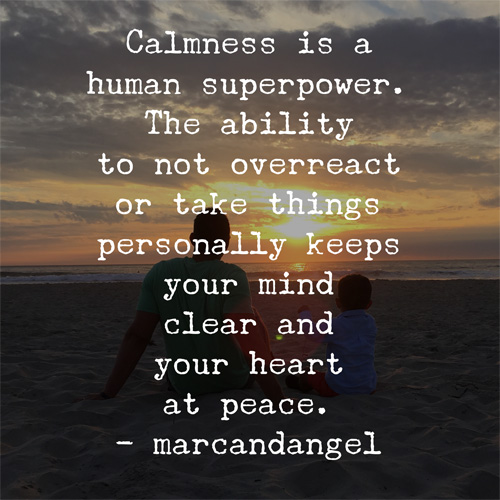
2.

3.

4.
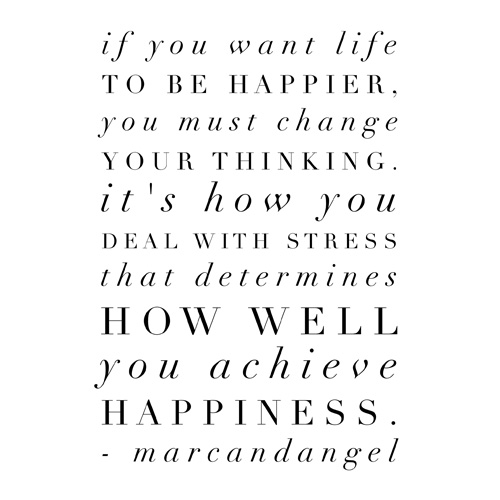
5.

6.

7.
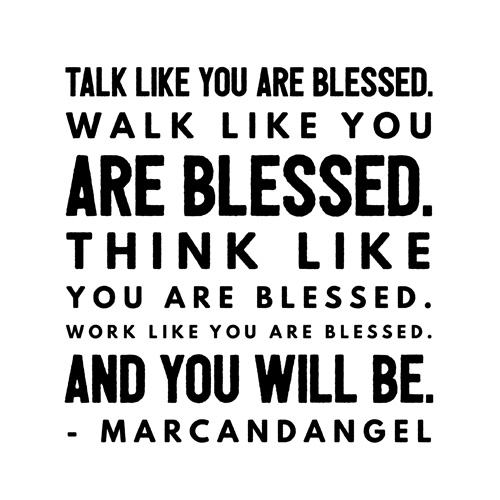
8.

9.

10.

11.

12.

13.

14.
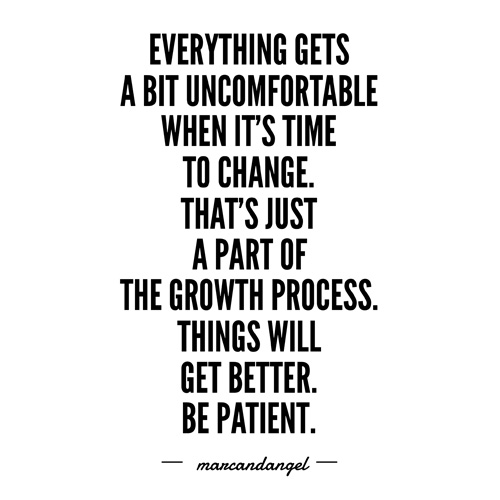
15.

16.

17.

18.
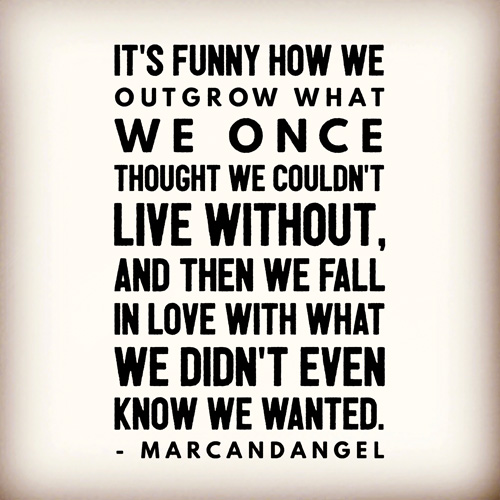
19.

20.

21.

22.

23.

24.
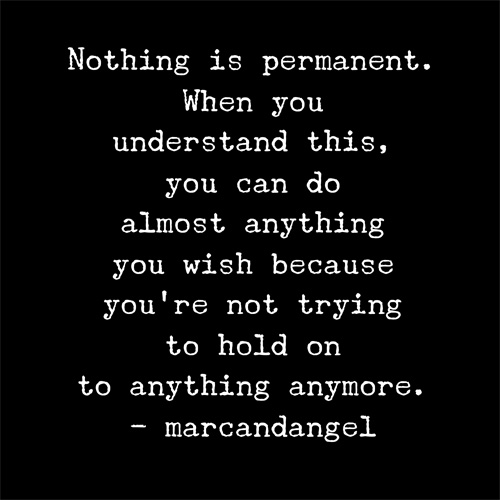
25.
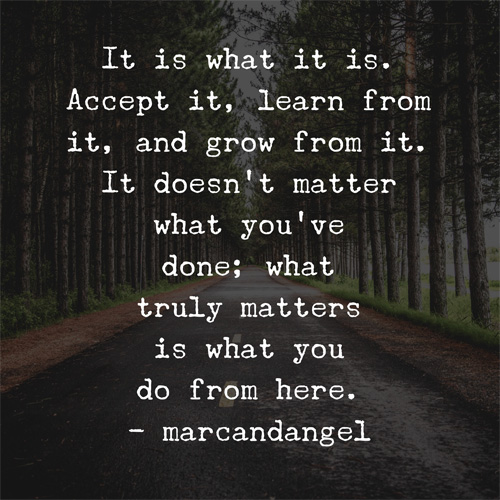
26.
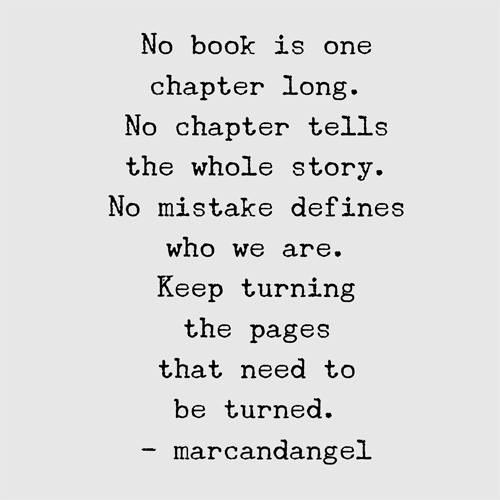
27.
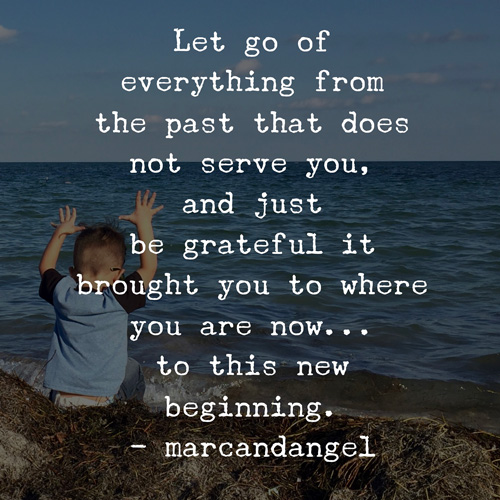
28.
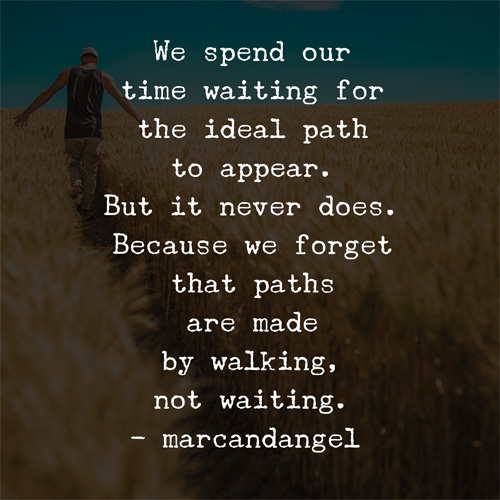
29.
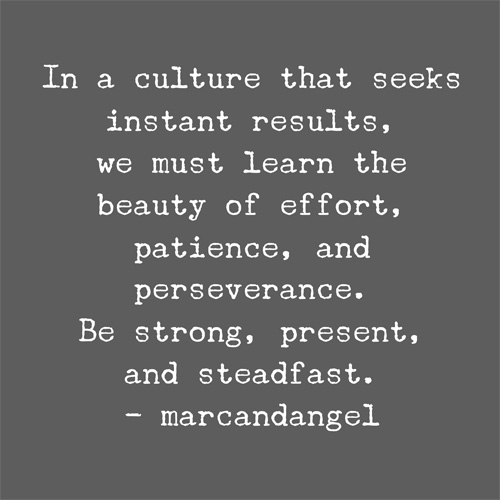
30.
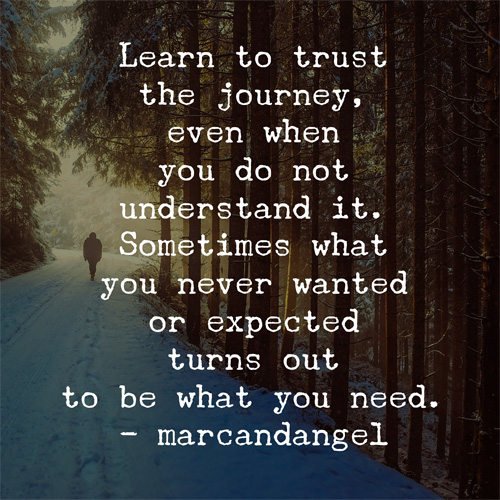
31.

32.
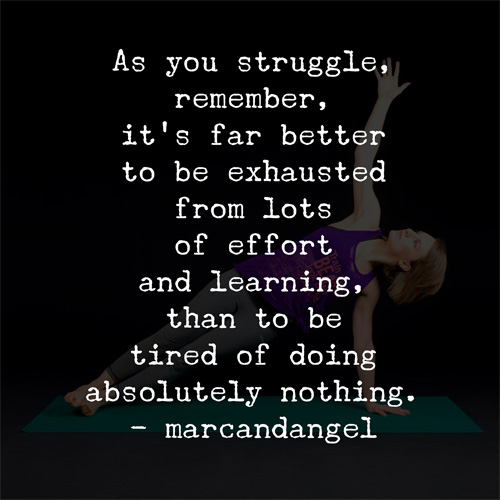
33.
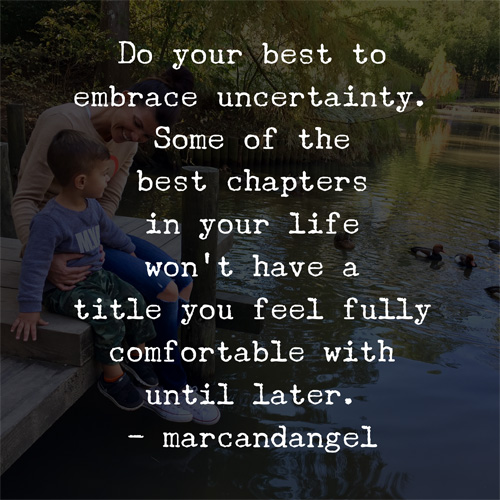
34.
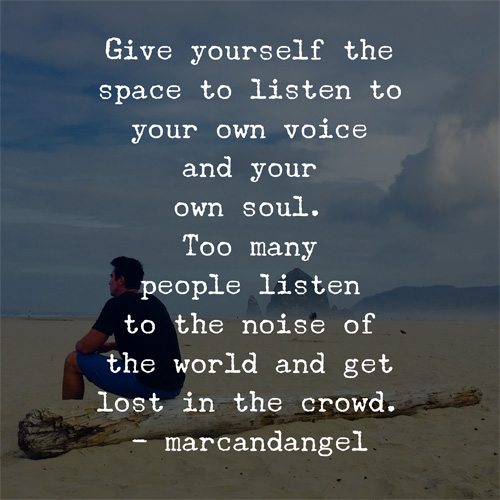
35.
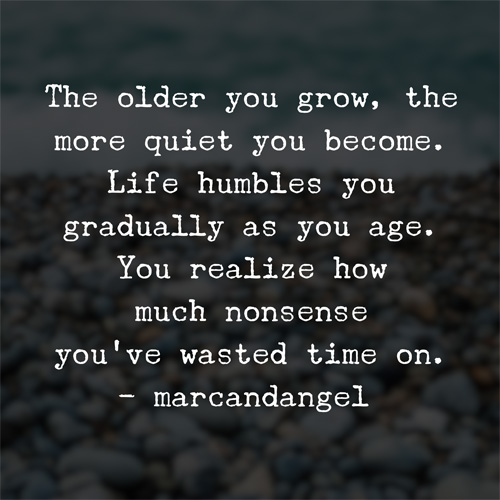
36.
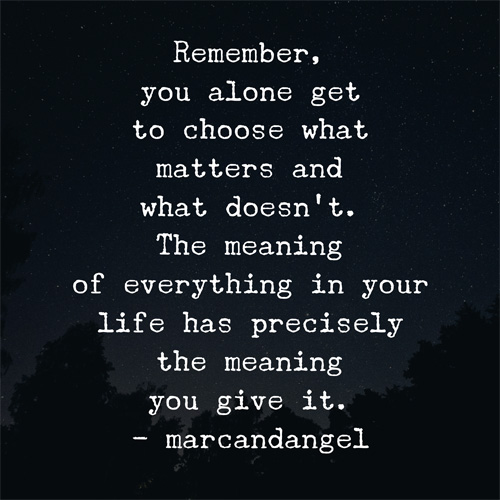
37.
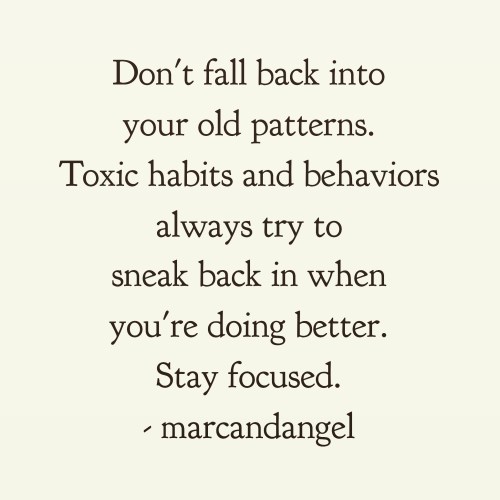
38.
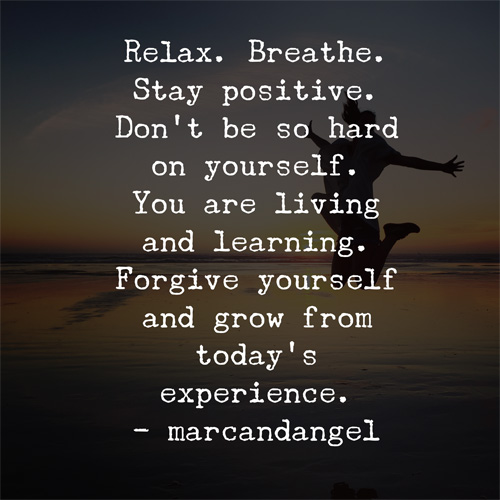
39.
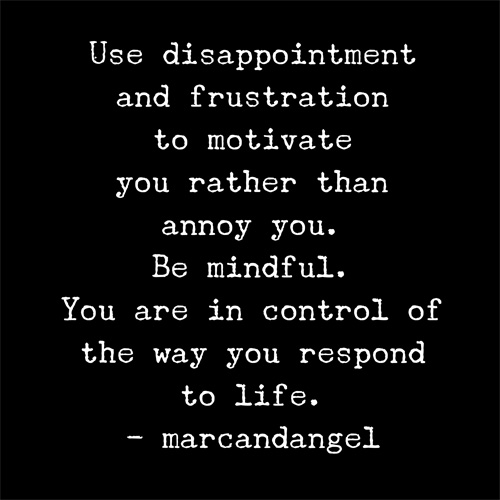
40.

Before you go, please share this post with others who you think will benefit from it, and also share your thoughts with us in the comments section below. Which quote or saying above resonated the most today? Or perhaps share an additional quote or personal saying that has helped you cope more effectively through life’s twists, turns, and crossroads.
Finally, if you haven’t done so already, be sure to sign-up for our free newsletter to receive new articles like this in your inbox each week.




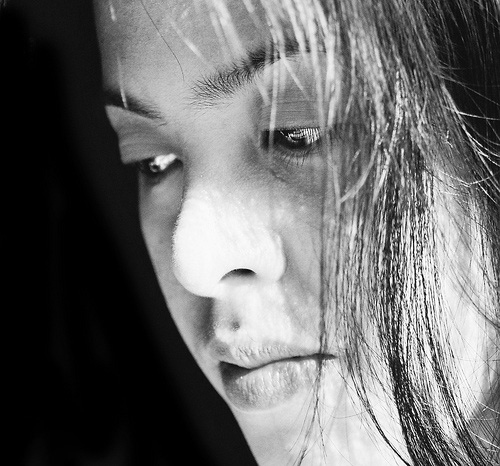


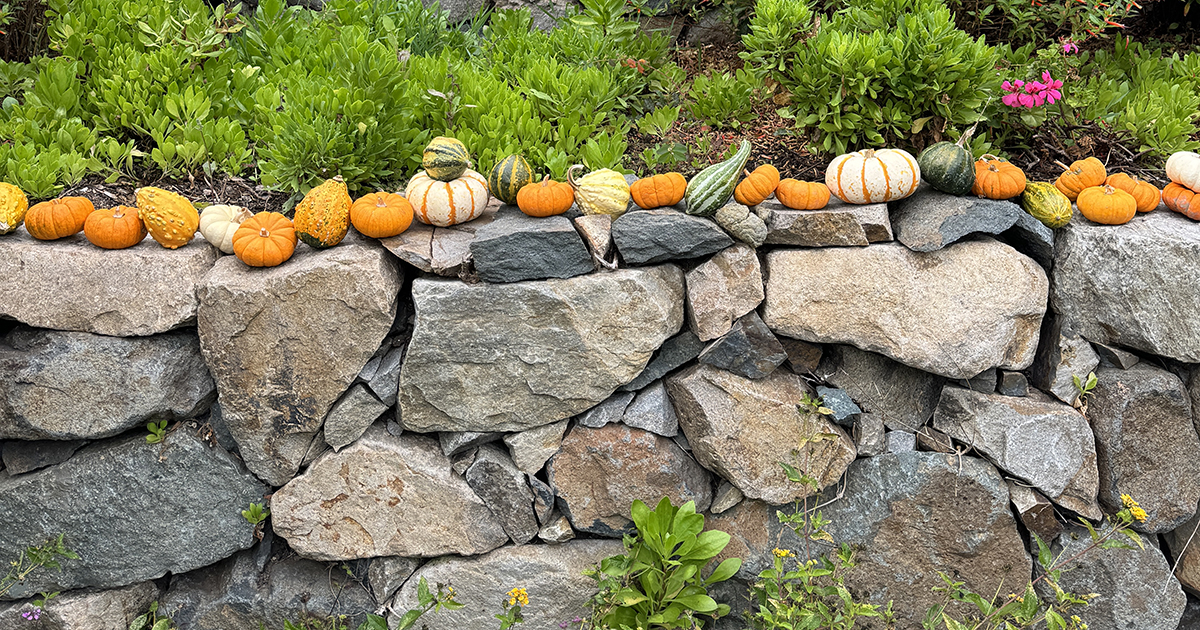
3yaqp6
om7f55
tnu16u